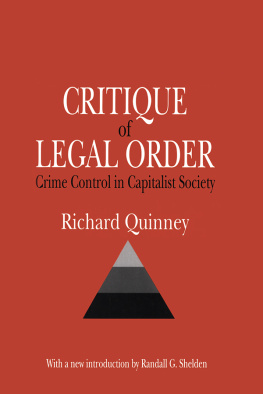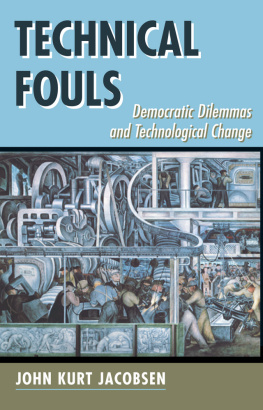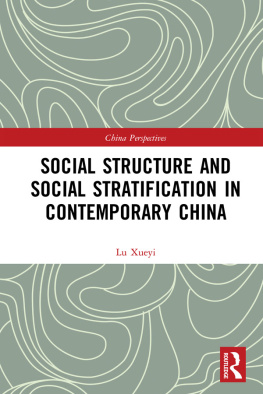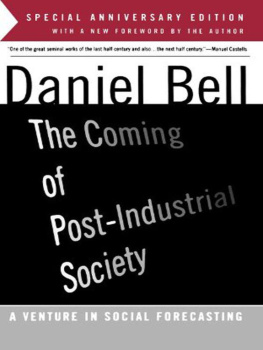Routledge Revivals
Industrial Society
Any study of contemporary industrial societies must take into account the role of power, ideology and class, and the degree to which these determine the development of social structures. This book, first published in 1977 and based on a selection of eleven papers given at a conference of the British Sociological Association, focuses upon aspects of continuity and change in modern society, comparing and contrasting dimensions of class, cleavage and control in capitalist and socialist societies.
This book is key reading for students of both sociology and business studies.
Industrial Society
Class, Cleavage and Control
Edited by
Richard Scase
First published in 1977
by George Allen & Unwin Ltd
This edition first published in 2015 by Routledge
2 Park Square, Milton Park, Abingdon, Oxon, OX14 4RN
and by Routledge
711 Third Avenue, New York, NY 10017
Routledge is an imprint of the Taylor & Francis Group, an informa business
1977 British Sociological Association
The right of Richard Scase to be identified as editor of this work has been asserted by him in accordance with sections 77 and 78 of the Copyright, Designs and Patents Act 1988.
All rights reserved. No part of this book may be reprinted or reproduced or utilised in any form or by any electronic, mechanical, or other means, now known or hereafter invented, including photocopying and recording, or in any information storage or retrieval system, without permission in writing from the publishers.
Publishers Note
The publisher has gone to great lengths to ensure the quality of this reprint but points out that some imperfections in the original copies may be apparent.
Disclaimer
The publisher has made every effort to trace copyright holders and welcomes correspondence from those they have been unable to contact.
A Library of Congress record exists under LC control number: 76047126
ISBN 13: 978-1-138-84263-2 (hbk)
ISBN 13: 978-1-315-72645-8 (ebk)
Industrial Society
Class, Cleavage and
Control
Edited by
Richard Scase
London
GEORGE ALLEN & UNWIN LTD
RUSKIN HOUSE MUSEUM STREET
First published in 1977
This book is copyright under the Berne Convention. All rights are reserved. Apart from any fair dealing for the purpose of private study, research, criticism or review, as permitted under the Copyright Act, 1956, no part of this publication may be reproduced, stored in a retrieval system, or transmitted, in any form or by any means, electronic, electrical, chemical, mechanical, optical, photocopying, recording or otherwise, without the prior permission of the copyright owner. Enquiries should be addressed to the publishers.
British Sociological Association, 1977
ISBN 0 04 300067 3 Hardback
0 04 300068 1 Paperback
Printed in Great Britain by
Willmer Brothers Limited, Birkenhead
in 10 on 11 pt Times Linotype
The papers in this volume were all given at the 1975 Annual Conference of the British Sociological Association. The theme, chosen by the Association's executive committee, was Advanced Industrial Societies. Since this provided a framework within which, potentially, it was possible to discuss 'the World', the conference was divided into six more specifically defined areas of inquiry. There were no theoretical bases to these but they did provide useful contexts for the consideration of a number of key issues. It may be useful to describe, if only briefly, the contents of each of the themes.
The focus for the first was 'the nature' of industrial society. All the discussions in this section considered contemporary social structures in general, theoretical terms. Consequently, there were papers on the methodological and conceptual problems related to the comparative study of societies; the potentialities for developing typologies of different capitalist and socialist countries; and the utility of such concepts as 'post-capitalist', 'post-industrial' and 'advanced-industrial' for the study of social structures.
The study of industrial society has often been linked to the analysis of social structures as systems of domination and control. These issues were the bases for papers included in the second theme of the conference. While the theoretical contributions discussed the nature of power in society, those which were more empirically oriented considered the role of private property; the control and integrative functions of the welfare state; the accommodative and radical goals of trade unionism; and changing patterns of ownership and control in capitalist economies.
The third set of papers studied a closely related set of problems; namely aspects of ideology, thought and belief. Most of the contributions emphasised the ongoing, interdependent nature of material and ideological relationships. This was particularly evident in those which covered such topics as the role of formal education in capitalist society; the potentialities for the development of radical ideologies; the construction of material and social images; the 'nature' of mass culture; and the maintenance of pluralistic ideologies.
Papers in the fourth section were organised around the discussion of occupations, strata and classes. The starting points for most contributions were ideas taken from Marx, which were then considered in relation to the investigation of specific empirical problems. Thus, there were papers on the proletarianisation of managers and technical workers; the ideologies and the class location of the petite bourgeoisie; the strategies of social closure adopted by white-collar occupational groups; the position of the professions in the class structure; the role of migrants in European capitalist societies; patterns of maintenance and change in rates of social mobility; and the analysis of structural inequality in state socialist societies.
In the fifth section, the contributions concentrated upon the institutional structures of contemporary industrial societies. These were less inter-related than those in many of the other sections but this was the result of attempting to incorporate a large number of substantive issues. Some were of a very general, macro-sociological kind but there were others which concentrated upon more specific empirical problems. The topics discussed included the relationship between organisational size and systems of control; the 'nature' and quality of work in contemporary society; the changing conceptions of the family in modern Western society; the emergence of organised leisure; and the development of modern sport.
Finally, the sixth set of papers investigated aspects of industrialisation. In this section, the intention was to demonstrate as if it were necessary the close interdependence between 'developed' and 'developing' societies. Consequently, a number of contributions considered the role of imperialism and its effects upon the social structures of countries in Latin America, Africa and Asia, while others discussed the role of multinational corporations; the development of 'dual' economies; the industrialisation of China; the economic development of post-colonial countries in Africa; an assessment of whether there are universal 'industrial' attitudes and values; and the contribution of women to the industrialisation of different countries.







